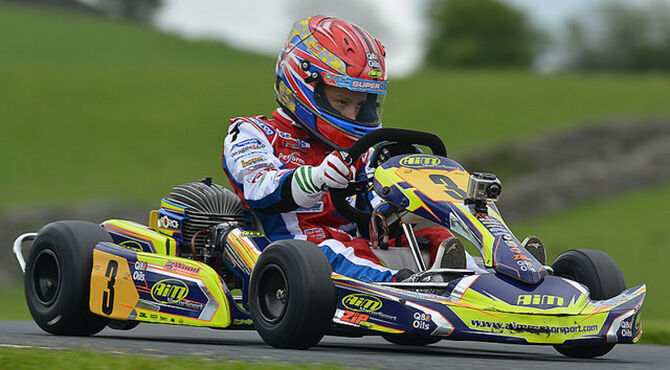Can a racing helmet reveal the next Lewis Hamilton?
Research using new EEG technology fitted into racing helmets is allowing scientists to analyse driver's thoughts and may enable Formula 1 coaches to spot the stars of the future.

A helmet that can ‘highlight changes in mood’
Driver's brainwaves are streamed from their helmet to the pit-crew and then analysed to spot patterns of processing that are not in line with the drivers' best performance on the track. The results can even highlight changes in mood. Emotional responses have been known in the past to cause drivers to misjudge risks and even to result in crashes but this research has the potential to impact driver behaviour before it even occurs.Training the next Lewis Hamilton – one neuron at a time
The research is being piloted with the Young Racing Driver Academy (YRDA), a motorsport academy based in Banbury, Oxfordshire. The academy aims to identify talented young drivers and enable them to develop their skills and so it was a natural choice for the research.Jon Pitts, YRDA coach, commented, “This project represents a new angle on elite sport, focusing on the brain as the central driver of performance. Overall it allows us to optimise the learning, skill development and performance of our YRDA drivers. In light of next season’s technical changes intended to make the cars even faster, the potential to optimise brain function could be the new advantage in the sport.”Inspiring the next generation of engineers
Innovation is the cornerstone of Formula 1, which has a commitment to changing the perceptions of science, technology, engineering and maths (STEM) in schools through its F1 in schools programme.Inspiring tomorrow’s workforce to careers in STEM is very much in tune with Relocate Global’s focus on education, schools and skills development.In related news we look at how Jaguar Landrover are investing in the next generation of engineers Jaguar Landrover- inspiring tomorrow's skills today
Predicting driver behaviour before it occurs
The YRDA will use this technology to complement their driver-training programme. Knowing the state of mind of a driver is highly important as it not only affects performance on the track (in terms of lap times and potential risks of accidents), but also how their style of driving wears out materials such as the tyres, suspension, and engine components.Cognisess’ Chief Scientific Officer, Dr Boris Altemeyer, said, “This brings cutting edge technology into an environment where elite performers can make use of data feedback with a level of detail that has never been possible before....it will allow us to help athletes push the performance benchmarks and reduce risks drastically. I can’t wait for Psychologists [to become] members of the race teams.”






































